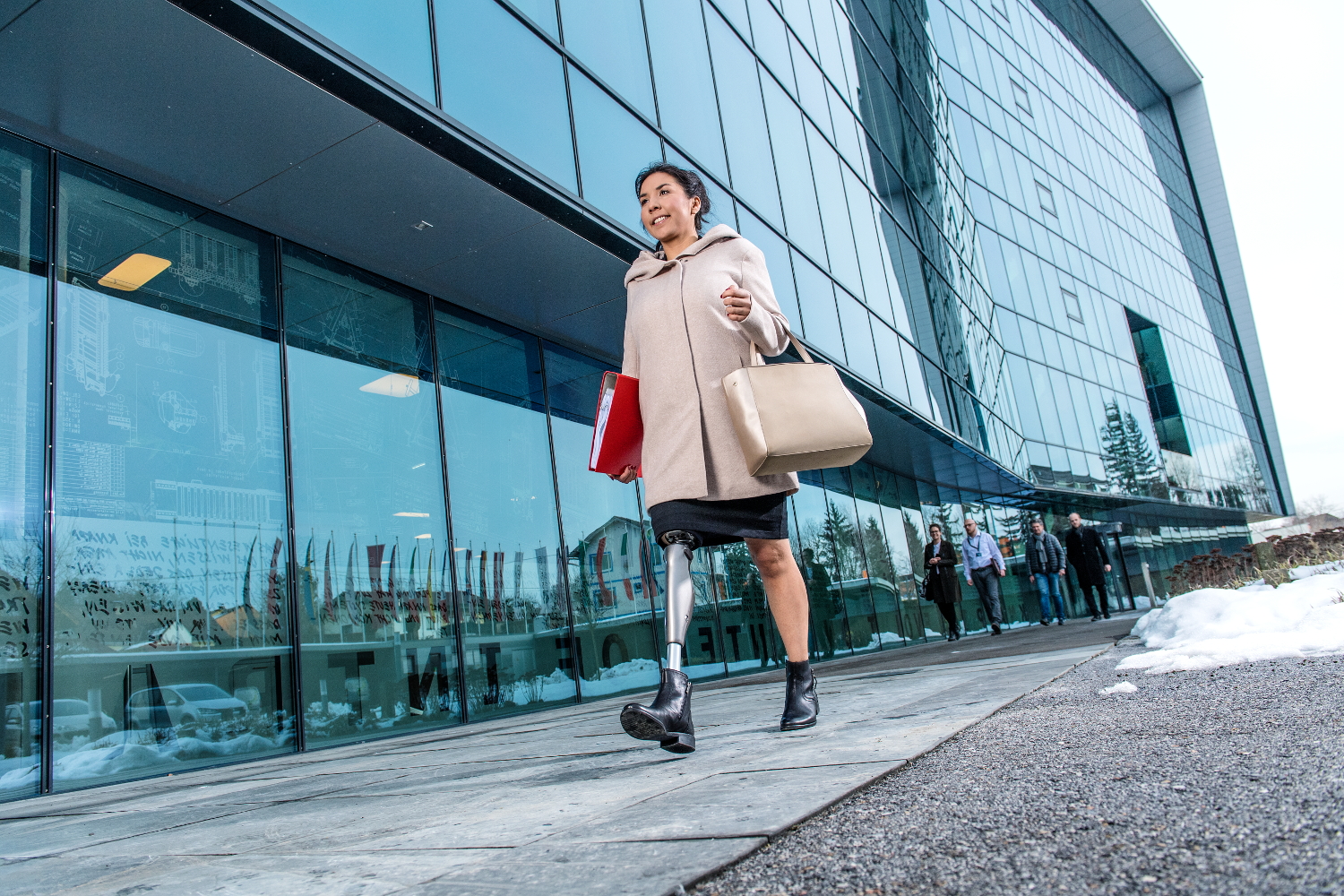I met Masomah Regl in 2016. I was in Graz, the city of my studies, to give a talk to fellow interpreters about my work at the EU Court of Justice. We met in a restaurant and Masomah was sitting next to me, listening attentively. On my way out I noticed that she had only one leg. Since then, we have been in contact. When the Taliban invaded Kabul a few days ago, I read her call for help. This is her story.

“I was born in Kabul in 1986. Masomah means “innocent child”. My father died when I was a baby. My mother raised us five children alone. Life is difficult for women in Afghanistan, and even more difficult without a husband. We were all malnourished and had almost nothing. I remember the poverty, mostly we were at home, in our own four walls. The war was a reality I was born into. I saw many bad things and heard bomb blasts.
When I was six years old, two rockets hit the house where we lived. I was injured in the leg and was dying in a crowded hospital for ten days. That’s when an aid organisation offered my mother to fly me to Germany so that I could receive medical care there. My mother didn’t know what to say, let alone where Germany was, where they wanted to take me. But she agreed in order to save her child’s life.
In Germany, I had emergency surgery and my right leg was amputated above the knee. I woke up in a foreign country with only one leg, had neither mother nor siblings with me and did not understand the language. But children are very adaptable and I quickly learned German. Of course, leaving my family behind was not easy for me, especially since it was much more difficult to keep in touch back then. It took months for letters to be answered and it was often unclear whether they had arrived at all.
When I was eight, I was placed with a foster family in Upper Austria, who then adopted me. It was not until five years later, at the age of 13, that I met my Afghan mother and siblings again for the first time.
In Austria, I grew up in a small community in the district of Ried im Innkreis, a village with 700 inhabitants. There were 5 children in my primary school class, all of them were blond and blue-eyed. I was an Afghan with only one leg. I know what it means to be different, an outsider, in two ways. That made me ambitious. After graduating from high school, I worked as a volunteer for the European Voluntary Service in Athens.
There, I gathered the courage to go my own way. I studied conference interpreting in Graz, travelled a lot, worked a lot, learned a lot. I gained experience in different fields, from social work to the EU Parliament to hi-tech companies. I also learned to come to terms with the fact that I have two families, two worlds inside me, and with the fact that I have a prosthesis. I found that all the doors in the world are open to me despite this – or perhaps because of it. It was and is important to me to overcome fears and broaden my horizons.
I wanted to do something for those who didn’t have the opportunities I got. During the refugee crisis in 2015, Afghanistan was often in the media, but mostly in a negative light. I wanted to change that. I have always helped people from Afghanistan and wanted to give my voluntary help an official framework. So I founded the NGO “Fivestones”. Fivestones was named after a game with five stones that is popular with Afghan children and requires a lot of skill. The stones also stand for the values of the organisation: tolerance, creativity, empathy, commitment and authenticity. Integration is not only the task of social institutions, but of all of us. Fivestones supports Afghans in Austria and in Afghanistan. In a learning centre in a backyard of Kabul, children, young people, women and men could learn together. All this is no longer possible now that the Taliban have taken over the country. For women and girls, life plans have collapsed and they are facing an islamist regime of terror.
My mother, my sister and her family, my eldest niece with her husband and her newborn baby, my brother and his family are helplessly at the mercy of the new regime. Until now, I supported them from Austria, I paid for their schooling, helped them to earn a living, motivated them for the future. Now all hope for a good future has died.
My sister and her family managed to get passports, tourist visas and plane tickets to Turkey just before the Taliban invaded, but it was too late and there was no plane for them. My niece’s husband worked for the national police, now he has to hide at home. My brother worked for the Americans for some time. He applied for evacuation, but thousands are crowding into Kabul airport, where there is huge chaos. Only a lucky few make it onto a UN or US plane that actually takes off.
It is only a matter of time before infrastructure like electricity and internet is destroyed and I lose the possibility to contact my family. Many Afghans living in Austria have made applications for family reunification but their applications have not yet been processed. I am desperate and appeal to the Austrian government: Please help our families!”
